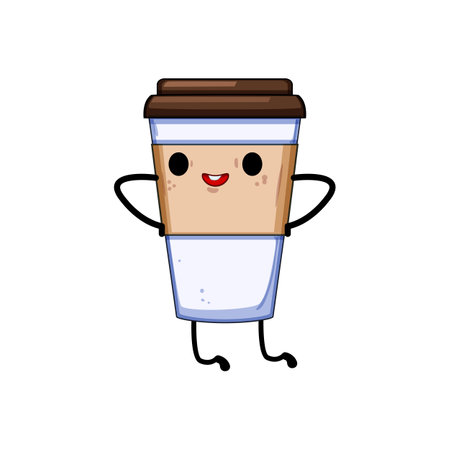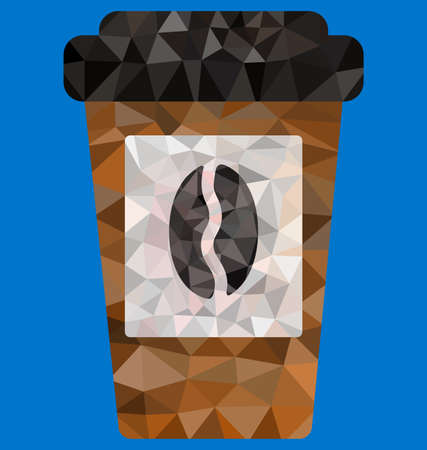1. What Is Caffeine Withdrawal?
Caffeine withdrawal is what happens when someone who regularly consumes caffeine suddenly reduces or stops their intake. If you’re used to having your daily cup of coffee, tea, soda, or energy drink and decide to skip it, your body might react with a range of physical and mental symptoms. This is because caffeine is a stimulant that affects the central nervous system, and your body gets used to its effects over time.
Why Does Caffeine Withdrawal Happen?
When you consume caffeine regularly, your brain adapts by altering its chemistry to balance the stimulating effects. Over time, it produces more adenosine receptors—adenosine being a natural chemical in the brain that promotes relaxation and sleepiness. Caffeine blocks these receptors, keeping you alert. But when you stop consuming caffeine suddenly, theres a flood of unblocked adenosine activity, making you feel extra tired and sluggish.
Common Sources of Caffeine
Caffeine isnt just in coffee. Heres a quick look at where many people get their caffeine from:
| Beverage/Food | Average Caffeine Content |
|---|---|
| 8 oz brewed coffee | 95 mg |
| 8 oz black tea | 47 mg |
| 12 oz cola | 34 mg |
| 8.4 oz energy drink | 80 mg |
| 1 oz dark chocolate | 12 mg |
How Much Caffeine Is Too Much?
The FDA suggests up to 400 mg of caffeine per day is generally safe for most healthy adults—that’s about four 8-oz cups of coffee. However, sensitivity varies from person to person. People who consume caffeine regularly may build up a tolerance, which can lead them to consume even more and make withdrawal symptoms more noticeable if they stop.
Key Takeaway:
Caffeine withdrawal is a real physiological response to cutting back on something your body has grown used to. Understanding what causes it helps explain why symptoms like headaches or fatigue can show up after skipping your usual morning brew.
2. Common Symptoms of Caffeine Withdrawal
If you’ve ever tried to cut back on coffee or skip your usual energy drink, you might have felt a bit off. That’s because your body can go through withdrawal when you stop consuming caffeine. Here’s a breakdown of the most common symptoms people experience, both physical and mental.
Physical Symptoms
Caffeine affects your central nervous system, so when you stop suddenly, your body reacts. These are the most reported physical symptoms:
| Symptom | Description |
|---|---|
| Headaches | Often starts behind the eyes and can feel like a dull, throbbing pain. Caused by changes in blood flow to the brain. |
| Fatigue | You may feel unusually tired or sluggish as your body adjusts to functioning without its usual stimulant. |
| Muscle Pain or Stiffness | Aching muscles or general discomfort, especially in the neck and shoulders. |
| Nausea | A mild upset stomach is not uncommon during the first few days of withdrawal. |
Mental and Emotional Symptoms
Quitting caffeine doesn’t just affect your body—it also impacts how you feel emotionally and mentally. Below are some common experiences:
| Symptom | Description |
|---|---|
| Irritability | You might find yourself easily annoyed or frustrated. This is a normal reaction as your mood stabilizes without caffeines boost. |
| Difficulty Concentrating | Your brain might feel foggy, and tasks that usually seem easy can feel overwhelming. |
| Low Mood or Mild Depression | Some people report feeling down or less motivated during withdrawal, but this typically passes within a few days. |
| Anxiety | While caffeine often contributes to anxiety, some people still feel anxious when withdrawing due to chemical imbalances resetting in the brain. |
What to Expect
The intensity and duration of these symptoms can vary depending on how much caffeine you normally consume and how suddenly you cut back. Some people only notice mild symptoms for a day or two, while others might feel unwell for up to a week. Understanding these symptoms is the first step toward managing them effectively.
Quick Tip:
If youre planning to cut back on caffeine, try reducing your intake gradually instead of quitting cold turkey. This can help minimize the severity of withdrawal symptoms.
In the next section, we’ll look at how long caffeine withdrawal typically lasts and what kind of timeline you can expect during the process.

3. Caffeine Withdrawal Timeline
When you decide to quit caffeine, your body can go through a number of changes as it adjusts to life without that daily dose of coffee, tea, or energy drinks. Understanding the typical timeline of caffeine withdrawal can help you prepare for what’s ahead and manage symptoms more effectively.
What to Expect Over Time
Caffeine withdrawal doesnt last forever, but the symptoms can feel intense in the beginning. Here’s a general breakdown of how symptoms usually unfold:
| Time After Quitting | What Happens |
|---|---|
| Within 12–24 Hours | Symptoms may begin to appear—commonly headaches, irritability, and fatigue. Some people feel a mental fog or mood swings. |
| Day 2–3 (Peak) | This is typically when symptoms are at their worst. Headaches can be more intense, and you might feel unusually tired or have trouble concentrating. |
| Day 4–6 | Symptoms usually start to ease up. You may still feel low energy or slightly irritable, but the worst is likely behind you. |
| 1 Week and Beyond | Most people feel noticeably better after a week. While mild cravings or occasional tiredness may linger, most withdrawal symptoms should be gone. |
Why the Timeline Varies
The exact timing and severity of caffeine withdrawal can differ depending on how much caffeine you were consuming and for how long. People who drank several cups of coffee or energy drinks daily might experience stronger or longer-lasting symptoms compared to someone who had just one cup in the morning.
Factors That Affect Withdrawal Duration:
- Caffeine Intake Level: Higher intake often means more intense withdrawal.
- Individual Sensitivity: Some people are more sensitive to caffeines effects—and its absence.
- Lifestyle Factors: Sleep habits, stress levels, and overall health can all impact recovery time.
Be Kind to Yourself During This Process
Caffeine withdrawal can be tough, but its temporary. Knowing what to expect day by day can make it easier to stay motivated and push through those rough patches. Whether youre cutting back slowly or quitting cold turkey, tracking your symptoms during the first week can help you stay aware of your progress and give yourself credit for every step forward.
4. Coping Strategies and Tips
If youre cutting back on caffeine or quitting it entirely, the withdrawal symptoms can be tough—but theyre manageable with the right strategies. Here are some simple, effective ways to ease the transition and support your body during this period.
💧 Stay Hydrated
Dehydration can make headaches and fatigue worse. Make sure youre drinking plenty of water throughout the day. A good rule of thumb is to aim for at least 8 cups (64 oz) of water daily, more if youre active or live in a hot climate. You can also include herbal teas or flavored water (without added sugar) to mix things up.
🍽️ Adjust Your Diet
Your food choices can have a big impact on how you feel during caffeine withdrawal. Choose whole, nutrient-rich foods that support stable energy levels. Try to avoid sugary snacks and highly processed foods that can cause crashes. Heres a quick guide:
| Food Type | Why It Helps |
|---|---|
| Complex Carbs (e.g., oats, brown rice) | Provide steady energy release |
| Protein (e.g., eggs, chicken, legumes) | Helps keep you full and focused |
| Healthy Fats (e.g., avocado, nuts) | Supports brain function and satiety |
| Fruits & Veggies | Packed with vitamins and antioxidants |
😴 Prioritize Sleep Hygiene
Caffeine masks tiredness, so once its gone, you may feel more fatigued than usual. Thats okay—your body is recalibrating. Focus on getting quality sleep by:
- Going to bed and waking up at the same time each day
- Avoiding screens an hour before bedtime
- Creating a cool, dark, and quiet sleeping environment
- Avoiding large meals or heavy exercise right before bed
⚡ Natural Ways to Boost Energy
You dont need coffee to feel awake! There are several natural ways to give yourself an energy boost during the day:
| Alternative | How It Helps |
|---|---|
| Mild Exercise (e.g., walking, stretching) | Improves circulation and boosts mood |
| B12-Rich Foods or Supplements | B12 supports energy metabolism |
| Aromatherapy (e.g., peppermint oil) | Scent can increase alertness temporarily |
| Cold Showers or Face Splashing | A quick way to wake up naturally |
| Lemon Water in the Morning | A refreshing way to kickstart digestion and hydration |
🧘 Manage Stress Proactively
Caffeine often acts as a stress buffer. Without it, you might notice anxiety or irritability creeping in. Try relaxation techniques like deep breathing exercises, guided meditation apps (like Calm or Headspace), journaling, or spending time outdoors to help balance your mood.
Remember:
Coping with caffeine withdrawal is all about listening to your body and giving it what it needs—rest, nourishment, hydration, and patience.
5. When to Seek Help
Caffeine withdrawal is a common experience for many people who decide to cut back on or quit caffeine. While symptoms like headaches, fatigue, and irritability are normal and usually fade after a few days to a week, there are times when it’s important to check in with a healthcare provider.
Recognizing When It’s More Than Just Withdrawal
Most caffeine withdrawal symptoms are temporary and manageable at home. However, if your symptoms feel severe or last longer than expected, it could be a sign of something more serious. Here are some red flags to watch for:
| Symptom | What It Could Mean |
|---|---|
| Persistent or severe headaches | May indicate migraines or another underlying condition |
| Extreme fatigue lasting over 10 days | Could signal anemia, thyroid issues, or chronic fatigue syndrome |
| Mood changes like anxiety or depression that dont improve | Might be related to mental health concerns beyond caffeine withdrawal |
| Heart palpitations or chest pain | Should always be evaluated by a doctor right away |
| Trouble concentrating or memory issues that persist | Could point to neurological concerns needing further assessment |
When to Contact a Healthcare Provider
If you’re unsure whether your symptoms are part of normal caffeine withdrawal or something more serious, it’s always okay to ask your doctor. Here are some situations when reaching out is a good idea:
- Your withdrawal symptoms don’t improve after 7–10 days.
- You feel overwhelmed, anxious, or depressed most of the day.
- You have other health conditions that may be affected by cutting caffeine.
- You’re using other stimulants (like energy drinks or supplements) to replace caffeine and feel unwell.
- You experience any physical symptoms that seem unusual or alarming.
Pro Tip:
If youre tapering off caffeine and want support, consider talking to your primary care doctor or even a registered dietitian. They can help you come up with a plan that fits your lifestyle and avoids unnecessary discomfort.


